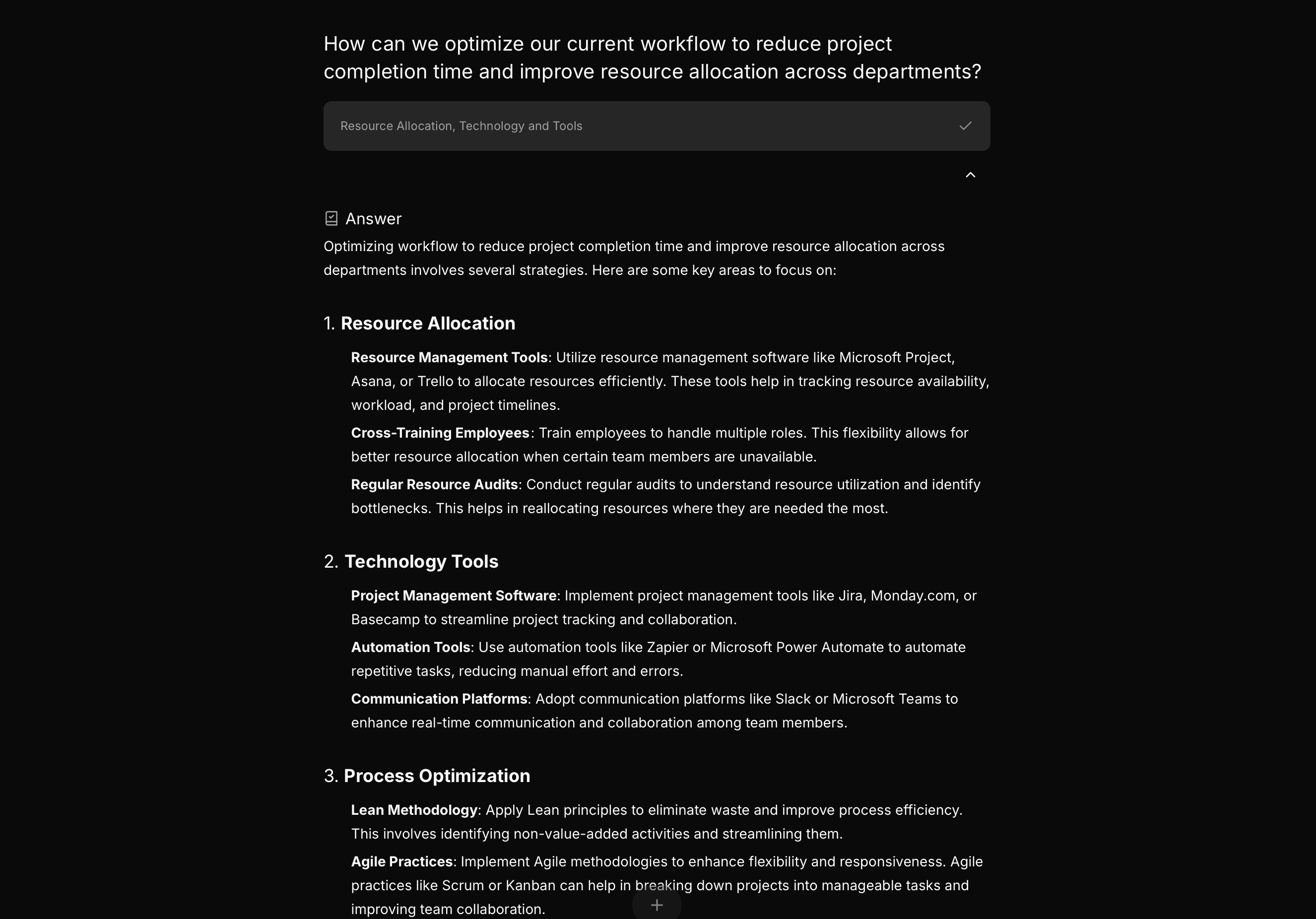operations
1. Automating Routine and Repetitive Tasks
Process Automation: AI takes over routine tasks such as data entry, report generation, and inventory management, freeing your team from manual work. This automation reduces the risk of human error and ensures that tasks are completed quickly and accurately.
24/7 Operations: Unlike humans, AI operates around the clock without fatigue, allowing essential tasks to be completed even outside of regular business hours. This ensures continuity in operations, especially in critical functions like customer support and order processing.
2. Optimizing Workflow Management
Smart Task Allocation: AI can analyze workload distribution and assign tasks based on employee availability, skill level, and priority. This dynamic task management ensures that projects are completed efficiently and resources are allocated optimally.
Real-Time Monitoring: AI continuously monitors workflows, identifying bottlenecks and suggesting real-time adjustments to improve operational speed and accuracy. This proactive management helps your business avoid delays and keep projects on track.
3. Enhancing Resource Management
Predictive Inventory Management: AI can forecast demand by analyzing historical data and market trends, allowing your company to maintain optimal inventory levels. This predictive approach minimizes overstocking or understocking, reducing inventory costs and ensuring timely order fulfillment.
Efficient Resource Allocation: AI helps manage resources more effectively, ensuring that human, financial, and material resources are utilized where they will have the greatest impact. This leads to reduced waste and more streamlined operations.
4. Data-Driven Decision Making
Actionable Insights: AI analyzes large datasets to provide actionable insights that drive decision-making. Whether it's optimizing production schedules, managing supply chains, or analyzing customer feedback, AI enables leaders to make informed, data-backed decisions quickly.
Performance Tracking: AI can track key performance indicators (KPIs) in real-time, providing insights into operational efficiency. This continuous monitoring allows businesses to measure success, identify areas for improvement, and adjust strategies accordingly.
5. Improving Compliance and Risk Management
Regulatory Compliance: AI systems can monitor and ensure compliance with industry regulations, automating documentation, and reporting processes to avoid costly penalties or legal issues. AI can also predict potential compliance risks and alert teams in advance, reducing the chance of violations.
Risk Mitigation: AI helps identify and assess operational risks, from supply chain disruptions to potential cybersecurity threats. By automating risk analysis and mitigation strategies, your business can stay ahead of potential issues and minimize operational downtime.

